Friendship Supports Small Bellevue Dharma Sangha
Written by: Bill Cooper
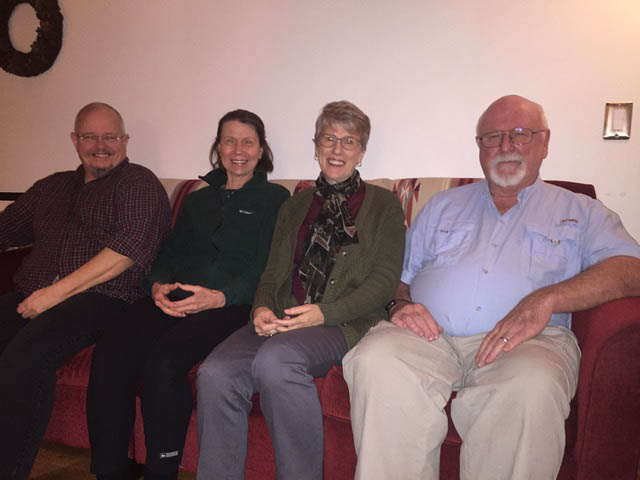
Bellevue Dharma attracts people from across the Eastside, including here Jack Barker, Ellen Cooper, Sharon Rodman and Dennis McCreery.
Photos by Bill Cooper
There are many ways to learn Buddhist teaching. One way is to learn it by attending retreats or studying texts. Another way is to meet with a small group of friends.
Since 2013 a small circle of friends and I have been meeting in the large city of Bellevue, Washington, east of Seattle, to learn the dharma together. In the beginning, like most groups, we barely knew each other. Over the years we’ve developed deep friendship and respect for one another.
Now we’re starting some new outreach.
Beginning Feb. 12, Bellevue Dharma will offer a small, online meditation class for newcomers, which will include instruction and discussion. After six meetings we will decide how we want to continue; my hope is that we will continue with classes, online or in person, as well as some longer retreats in Bellevue.
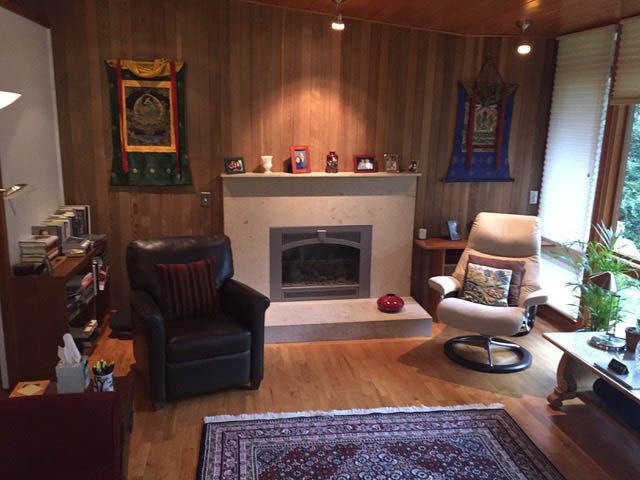
In early April 2019, I will also be leading a three-day Buddhist meditation retreat in Spokane. The setting is a bucolic contemplative center in the foothills.
A decade ago I became interested in early Buddhism and Pali teachings and this has been our focus.
Bellevue Dharma meets the first and third Tuesday evenings of each month. Our format is mixed: on the first Tuesday we usually discuss a book after a 35-minute meditation period.
Right now, we’re reading Stephen Batchelor’s “After Buddhism.” Our previous book for discussion was Gil Fronsdal’s “The Book of Eights,” believed to be an early Buddhist text, which taught the benefits of relinquishing strong views. We had strong views on relinquishing strong views. We’ve also occasionally studied Pali suttas.
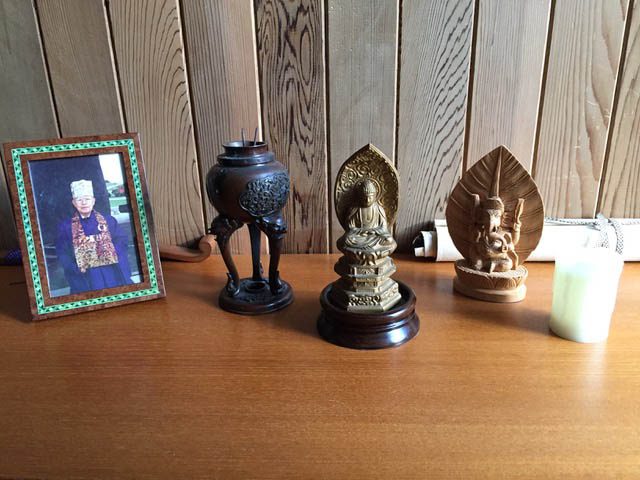
On the third Tuesday evening of the month we usually discuss our personal experiences of the dharma. We begin with a meditation period, then I usually give a dharma talk followed by tea and discussion about to how we’re practicing–or not– the dharma. It’s friendly and supportive.
There are still challenges for our group in learning the dharma. None of us were born into a Buddhist culture and we don’t live in one now, so learning the dharma is essentially a process of exploration and translation of ancient teachings into a secular landscape. Fortunately the dharma has continued to grow in North America, and access to Buddhist teachings and contemporary translations has become widely available, often leading us to form new conclusions about the dharma. It’s exciting and endless.
Our group has benefited from many friends, especially the teachers and sanghas of Sati Sangha in Santa Monica, Pine Street Sangha in Portland, and more recently Atammayatarama Buddhist Monastery in Woodinville.
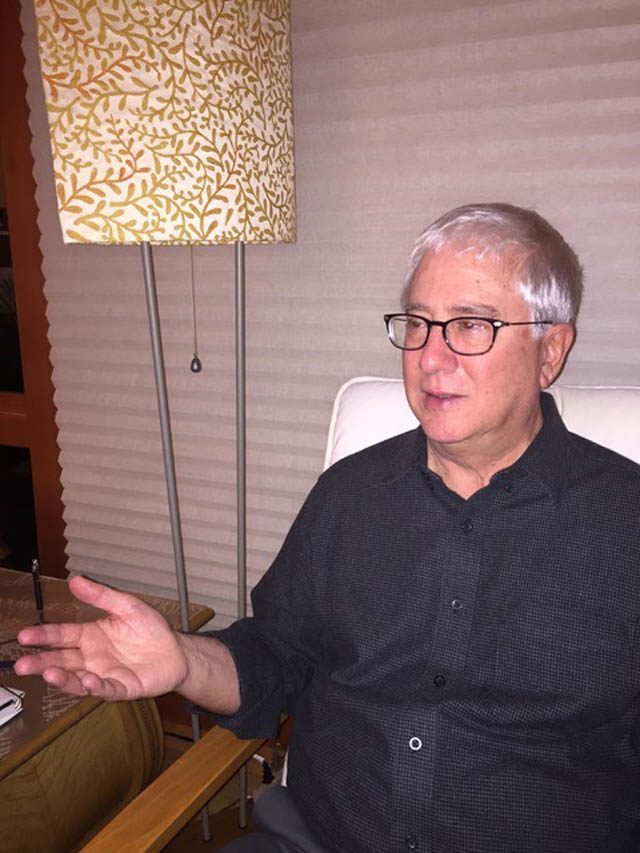
My first teacher in the 1980s, Matsuoka Roshi, taught Zen Buddhism from his duplex in Long Beach, California. It was a lovely group in that the practice was concise and ordinary: we chanted the Heart Sutra, meditated, and from there we each tried to bring the dharma into our lives.
Today I try to bring some of Matsuoka’s ordinary wisdom into our evening meetings in Bellevue.
Another significant event occurred in the 2000s when I studied with the teachers of the Skillful Meditation Project. They emphasized the value of recollection, curiosity and dialogue about our meditation experiences, as important qualities for inclining our minds to the dharma. They also favored working in small groups, which I’ve found to be invaluable.
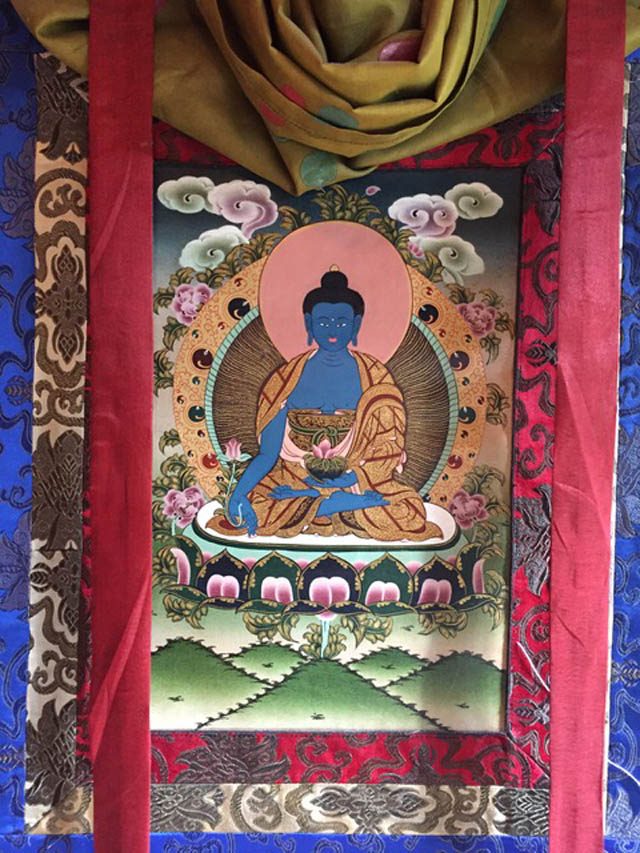
Let’s face it, for many of us meditation can become difficult if our practice becomes isolated and totally private. I think it’s important to have trusted friends, a group, to talk with and assist us in staying grounded, and working through dead ends or other difficulties that often occur in meditation. It’s in this spirit that I teach.
I invite anyone interested in joining us online, or in person, to contact me for more information at BellevueDharma@gmail.com.
Bill Cooper teaches Buddhist meditation to individuals and small groups both online and at Bellevue Dharma. He is grateful to have practiced meditation and studied with several contemplative teachers for the past 40 years. Cooper is committed to teaching a dharma that is open to the student’s experiences and orientation, whether Buddhist or other.
